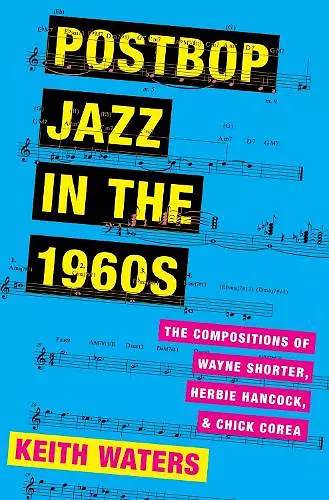Postbop Jazz in the 1960s
The Compositions of Wayne Shorter, Herbie Hancock, and Chick Corea
Format:Hardback
Publisher:Oxford University Press Inc
Published:29th Aug '19
Currently unavailable, and unfortunately no date known when it will be back

Innovations in postbop jazz compositions of the 1960s occurred in several dimensions, including harmony, form, and melody. Postbop jazz composers such as Wayne Shorter, Herbie Hancock, and Chick Corea broke with earlier tonal jazz traditions. Their compositions marked a departure from the techniques of jazz standards and original compositions that defined small-group repertory through the 1950s: single-key orientation, schematic 32-bar frameworks (in AABA or ABAC forms), and tonal harmonic progressions. The book develops analytical pathways through a number of compositions, including "El Gaucho," "Penelope," "Pinocchio," "Face of the Deep" (Shorter); "King Cobra," "Dolphin Dance," "Jessica" (Hancock); "Windows," "Inner Space," "Song of the Wind" (Corea); as well as "We Speak" (Little); "Punjab" (Henderson); "Beyond All Limits" (Shaw). These case studies offer ways to understand their harmonic syntax, melodic and formal designs, and general principles of harmonic substitution. By locating points of contact among these postbop techniques-and by describing their evolution from previous tonal jazz practices-the book illustrates the syntactic changes that emerged during the 1960s.
For both scholars and jazz enthusiasts, Waters's monograph stands as a definitive account of an essential but still understudied body of music, full of ideas that can be fruitfully adapted to examine related repertoires. I hope and expect that numerous scholars-including Waters himself-will continue to leverage this potential in coming years. * Ben Baker, Eastman School of Music, Society for Music Theory *
ISBN: 9780190604578
Dimensions: 236mm x 157mm x 23mm
Weight: 476g
192 pages